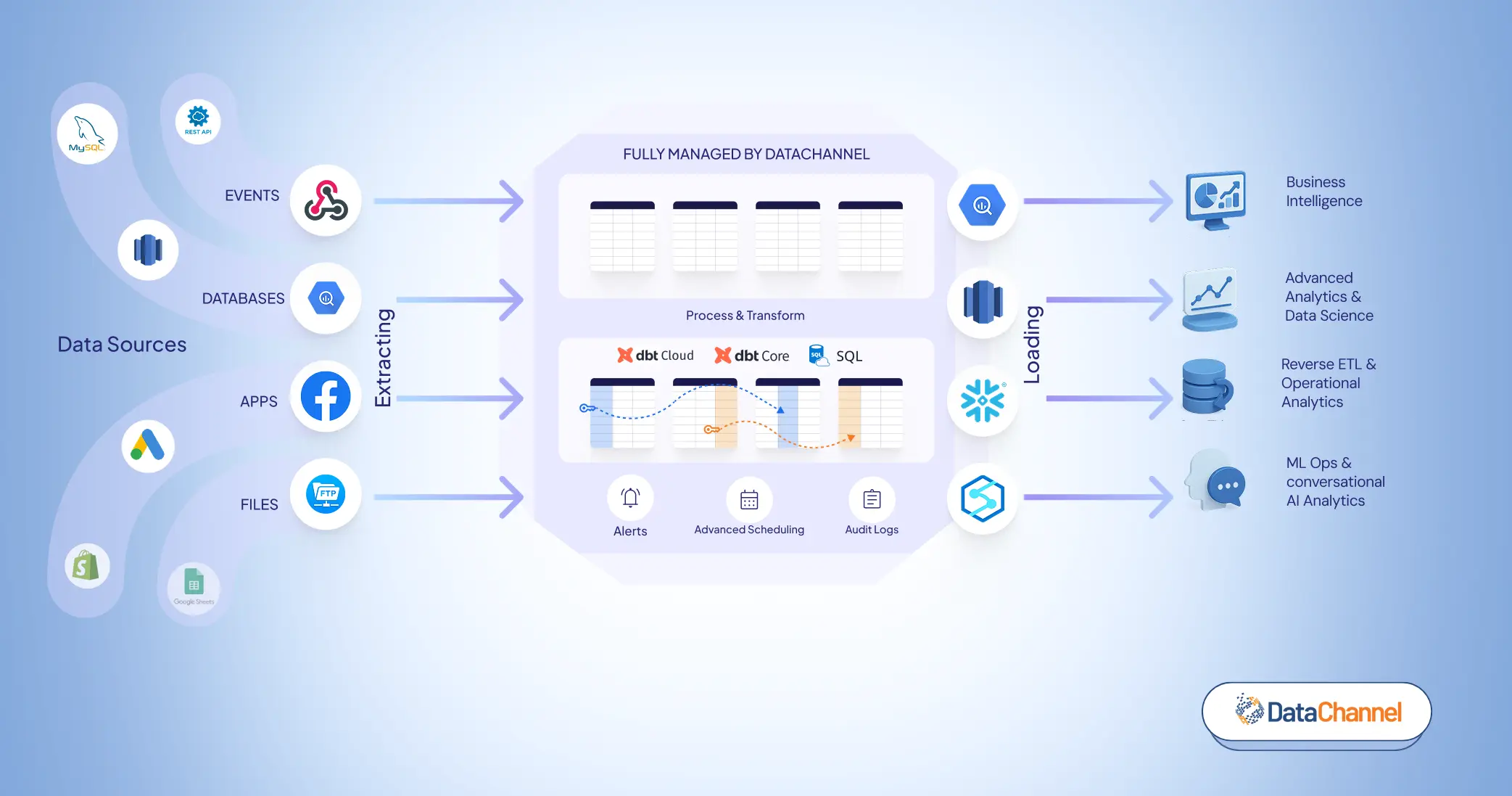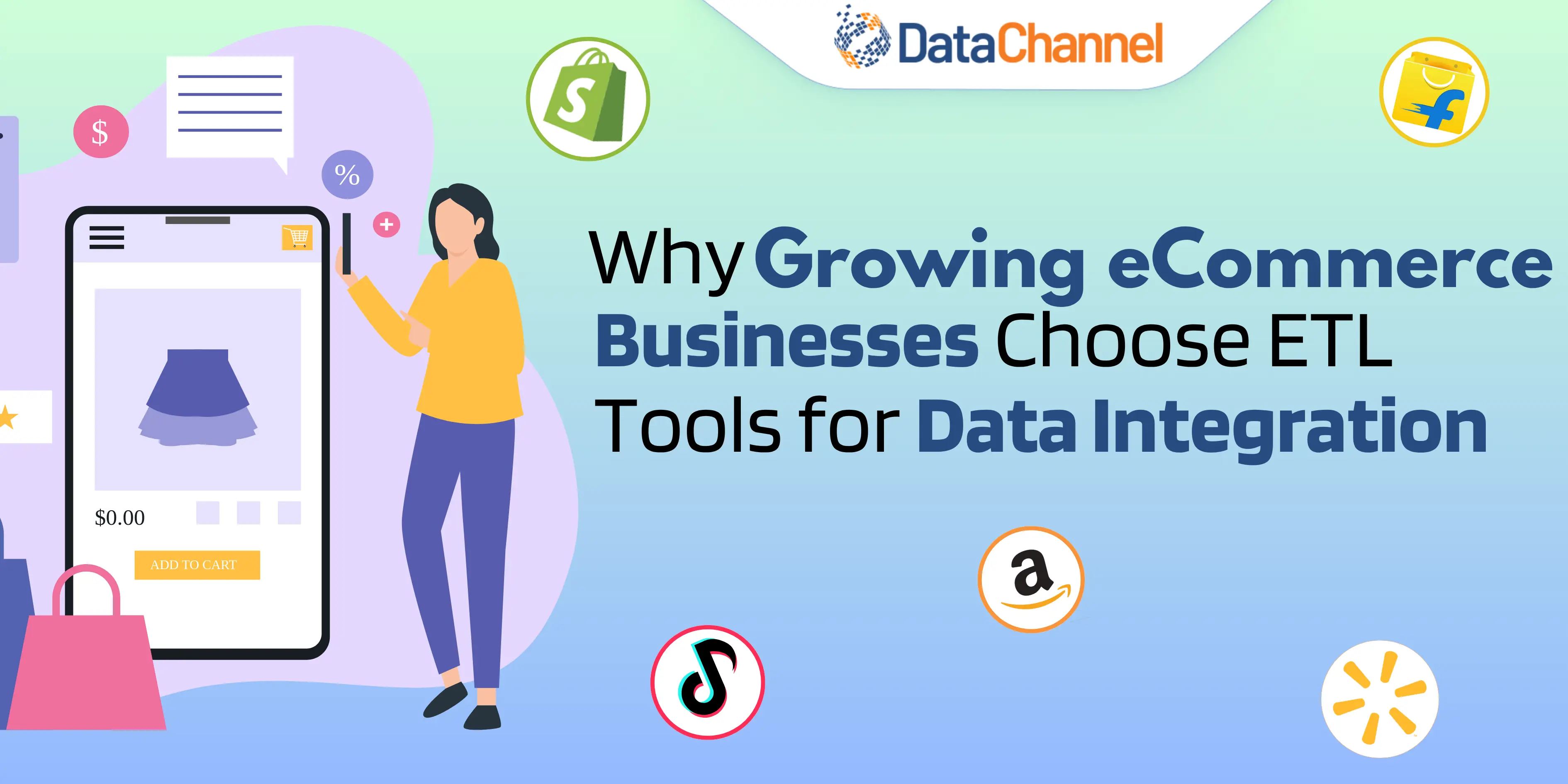
How a Cloud Data Integration Platform Can Help Your Business
A data-driven enterprise is always on the lookout for an innovative tool that is powerful, easy-to-use, and versatile. A cloud data integration platform is one such platform that creates agile data pipelines, with the various benefits associated with cloud storage and management. It enables a smart, enterprise-wide data catalogue that can deliver more analytics-ready data for you to obtain deep insights.
Instead of relying on manual Extract, Transform and Load (ETL) for data integration tasks, enterprises are increasingly leveraging cloud data integration platforms. By using a single, unified data integration platform, you can extract, filter, transform, distribute, aggregate, index and synchronize data across multiple data stores faster and more efficiently.
Why you need a cloud data integration platform
Enterprises collect and analyze an ever-increasing volume and variety of data, and they need a data integration tool that allows them to work with a variety of data formats and data storage platforms. In addition, they need to be able to keep pace with dynamic, hybrid computing environments.

This is one of the fundamental reasons why companies are accelerating their move towards cloud-based data integration platforms which also follow the ETL best practices. The benefits like flexibility, scalability, and cost-effectiveness are obvious and easy to discern. A cloud data integration platform enables easy access to the latest and most accurate data by accelerating the discovery and availability of analytics-ready data. The near-real-time, robust, flexible data aggregation features allow you to implement and accelerate data-driven initiatives. These are massive benefits when it comes to beating the competition with real-time insights and decision-making.
.png)
The 3 Cs of Data Integration: Cost, Constraints, and Complexity
Enterprises that need to democratize data access across the enterprise face a few common data integration challenges, especially concerning analytics modernization.
Increasing data transfer costs: The cost of data transfers is often overlooked. This is one reason enterprises find it difficult to predict cloud costs. It is difficult to control when multiple services are being used by different stakeholders. Moving data in and out of different platforms such as the cloud, CRM, eCommerce systems and other platforms involves significant data transfer charges.
Lack of resources: Finding the right people to do the work is always a challenge for enterprises. Data-hungry organizations require highly skilled and specialized knowledge workers. At most enterprises, IT teams struggle to meet the demands and this is where a lack of technically adept resources and self-service capabilities becomes a bottleneck.
Complexity: Companies are finding it increasingly difficult to connect cloud, SaaS and multi-cloud tools with on-premises environments. Disparate tools don’t work well together. There are differences in data granularity and schema that can be show stoppers. Data quality, richness and usability suffer because of these issues. The exponential increase in new platforms adds to the woes of data-driven enterprises.
How can a Cloud Data Integration Platform help?

Low-impact data aggregation: A cloud-based data integration platform enables low-latency data aggregation without impacting the performance of the data source. With the ability to schedule data collection or automate it, the data integration process can be made seamless.
Ease of use: The best data integration platforms come with an intuitive point-and-click user interface that simplifies configuration, accelerates implementation, and allows for continuous improvement, effectively lowering the total cost of ownership. Easy to use, drag-and-drop user experience is a force multiplier when it comes to the actual users. Empowering data analysts and data scientists with intuitive tools empowers them to focus on delivering insights rather than struggling with complex software or configurations.
Codeless self-service tools: Data integration platforms can increase resource productivity with low/no-code tools or self-service features for citizen data scientists and other users. When there is no manual coding required, it enables faster turn-around times when it comes to data transformation and ETL tasks. This is how the best cloud data integration platforms can become a powerful component of your analytics strategy. In addition, the ability to monitor and manage all data integration jobs and processes through a unified administration console or dashboard.
Scalability and flexibility: The ability to scale up as your data grows and support rapidly evolving use cases is essential. These capabilities are built-in when it comes to cloud data integration platforms. Using the power of the cloud and its elastic scalability, enterprises can achieve faster, cost-effective cloud-native data integration.
Single source of truth and enterprise data: A cloud-native data integration solution provides a unified platform for enterprise agility. Having all your data in one place, being able to slice and dice it whenever you want enables analytics on the go. Reducing the time it takes for manual ETL tasks, a cloud data integration platform enables faster analysis and decision-making cohesively.
Flexible, consumption-based pricing: A salient feature of most cloud data integration platforms is consumption-based pricing. This lets enterprises easily scale up or down as their needs change.
Aggregate, integrate and enrich your data: Cloud-native data integration platforms enable you to aggregate data from multiple data sources and enrich it with data from other sources at the same time. This ability to mix different data sources can lead to deeper insights and better decision-making.
Reduced complexity: The support for multi-cloud instances when using a single cloud-based data integration platform frees you from an enormous admin overhead. The reduced complexity helps enterprises focus on gathering insights and operationalizing the data rather than trying to make different point solutions, platforms and data sources work together.
Simplified data integration: A cloud based data integration platform simplifies data integration challenges. Instead of multiple tools from different vendors, enterprises can use a single, cloud-native solution with simplified tooling that works in sync with all enterprise data sources such as Google Analytics, Shopify, FTP, S3, or PostgreSQL and more. Businesses get data quality as part of the data lifecycle. This enables accelerated deployment which in turn helps improve decision-making using deep analytical insights based on trusted data.
.png)
DataChannel – An integrated ETL & Reverse ETL solution
- 100+ Data Sources. DataChannel’s ever-expanding list of supported data sources includes all popular advertising, marketing, CRM, financial, and eCommerce platforms and apps along with support for ad-hoc files, google sheets, cloud storages, relational databases, and ingestion of real-time data using webhooks. If we do not have the integration you need, reach out to our team and we will build it for you for free.
- Powerful scheduling and orchestration features with granular control over scheduling down to the exact minute.
- Granular control over what data to move. Unlike most tools which are highly opinionated and dictate what data they would move, we allow you the ability to choose down to field level what data you need. If you need to add another dimension or metric down the line, our easy to use UI lets you do that in a single click without any breaking changes to your downstream process.
- Extensive Logging, fault tolerance and automated recovery allows for dependable and reliable pipelines. If we are unable to recover, the extensive notifications will alert you via slack, app and email for taking appropriate action.
- Built to scale at an affordable cost. Our best in class platform is built with all ETL best practices built to handle billions of rows of data and will scale with your business when you need them to, while allowing you to only pay for what you use today.
- Get started in minutes. Get started in minutes with our self-serve UI or with the help of our on-boarding experts who can guide you through the process. We provide extensive documentation support and content to guide you all the way.
- Managed Data Warehouse. While cloud data warehouses offer immense flexibility and opportunity, managing them can be a hassle without the right team and resources. If you do not want the trouble of managing them in-house, use our managed warehouse offering and get started today. Whenever you feel you are ready to do it in-house, simply configure your own warehouse and direct pipelines to it.
- Activate your data with Reverse ETL. Be future-ready and don’t let your data sit idle in the data warehouse or stay limited to your BI dashboards. The unidimensional approach toward data management is now undergoing a paradigm change. Instead, use DataChannel’s reverse ETL offering to send data to the tools your business teams use every day. Set up alerts & notifications on top of your data warehouse and sync customer data across all platforms converting your data warehouse into a powerful CDP (Customer Data Platform). You can even preview the data without ever leaving the platform.
Try DataChannel Free for 14 days










